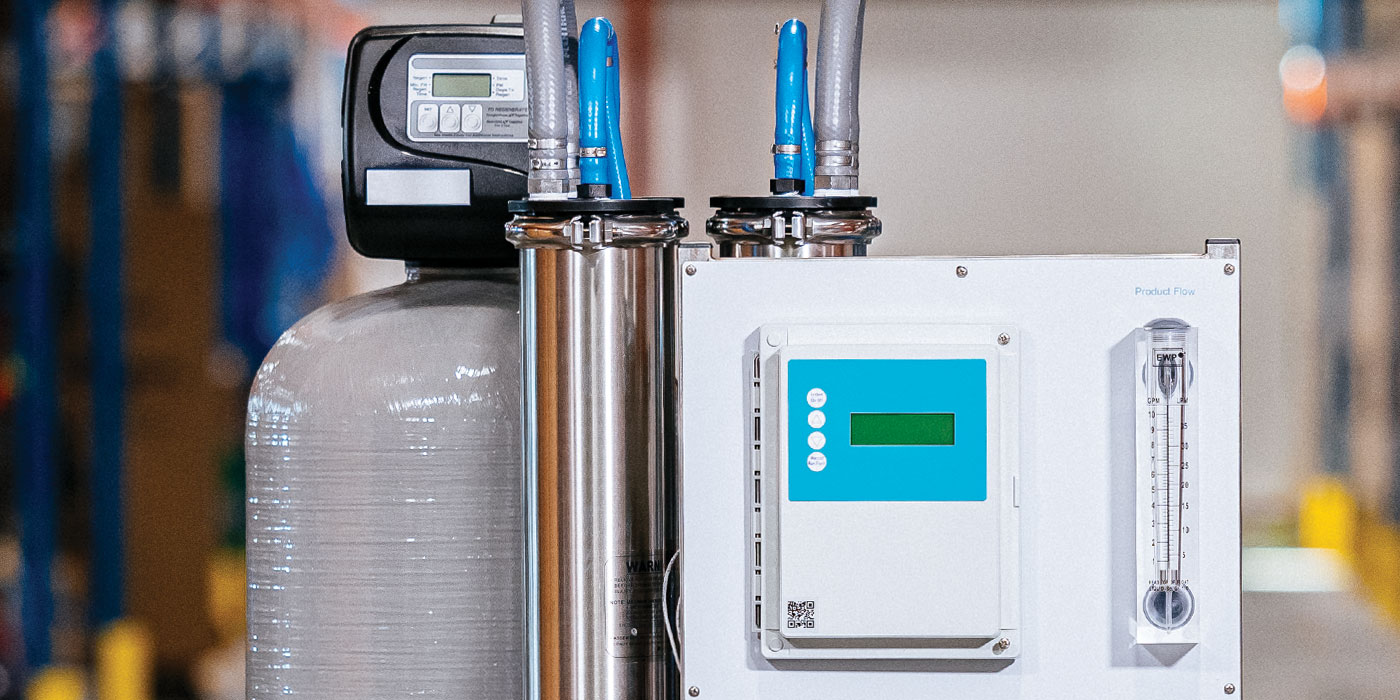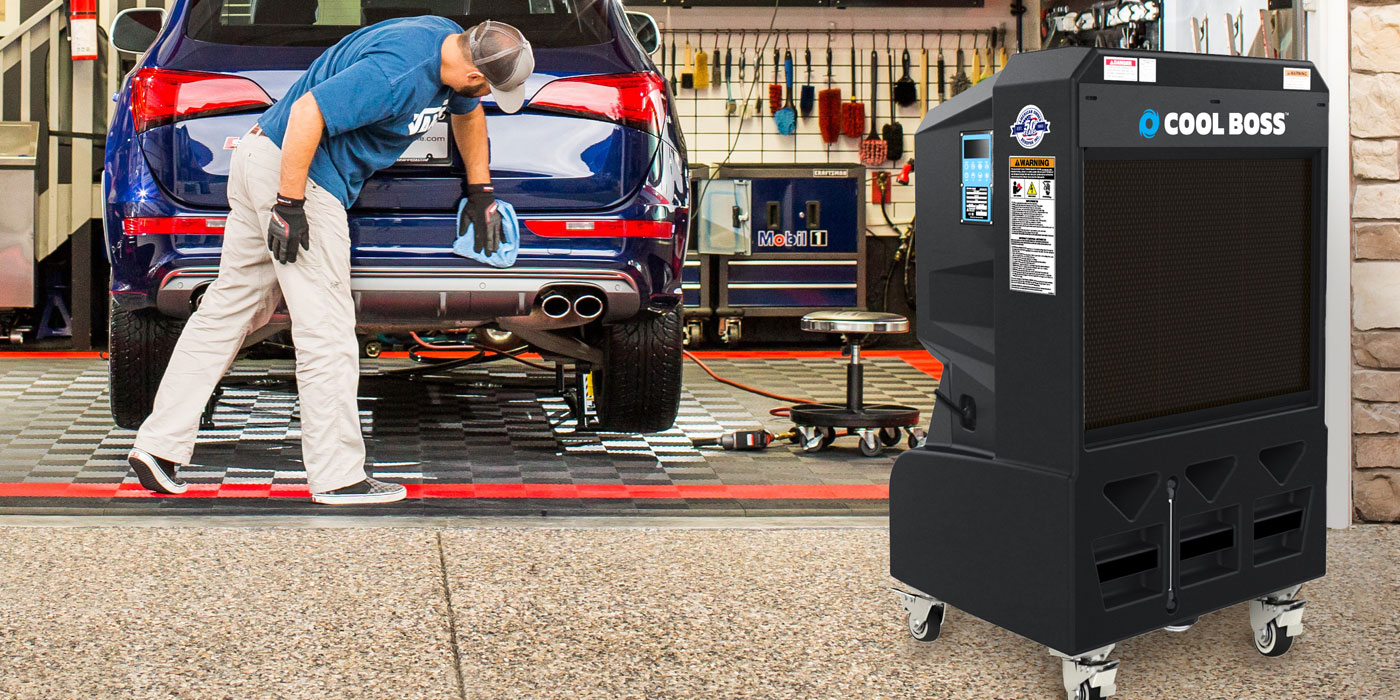If anyone understands the impact of a cloudy day after a period of sunshine, it’s carwash operators. There’s disappointment, hope for a quick turnaround and a general feeling of weathering the storm for brighter days ahead. So was the case for most of the world during March and April 2020 as the coronavirus spread.
No time to read this article? Listen to it instead!
While the hope is that these March and April showers will bring May flowers back, at the time of writing this article in mid-April, 97% of Americans are still under stay-at-home orders; businesses are being forced to close, adjust hours and change the way they operate; and millions of American workers, who had job stability weeks ago, are now unemployed. Highways across America, which are typically packed with commuters and travelers, are now free-flowing and occupied mostly by essential workers and residents in need of critical supplies and products, such as groceries and medicine.
Even as early plans are currently being forged on the state and federal levels for an eventual return to “normalcy,” operators and industry professionals that we spoke with understand that the effects of the coronavirus on our country and this industry will be longer lasting.
In late March and early April, as the number of U.S. coronavirus cases (over 500,000), fatalities (over 20,000) and unemployment numbers continued to skyrocket, we reached out to several carwash professionals to get their thoughts on the evolving situation and to understand the difficult decisions they were having to make.
Is carwashing essential?
In addition to offering public health guidelines and recommendations to slow the spread of the virus, federal and local governments also put restrictions on large gatherings and directed people to work from home if possible. Schools across the U.S. also closed. Social distancing was the new norm.
The goal was to flatten the curve of infection and help minimize the stress on the health care system. According to the country’s leading health officials, these drastic measures were also needed to save hundreds of thousands — possibly millions — of lives. But, these decisions came at a cost to many.
The rate at which unemployment grew in March and April was staggering. By March 21st, over 3.3 million people filed for unemployment; a week later on March 28th, another 6.8 million filed, and by April 4th an additional 6.6 million people filed for unemployment. Over 15 million people lost their jobs in three weeks. By late April, over 22 million were newly unemployed.
Non-essential businesses, even with government emergency loan assistance programs in place, were quickly overwhelmed, and many shortly ceased operations. As these small and mid-sized businesses and their former or furloughed employees were significantly affected, the economy was in a freefall.
Carwashing was affected based on the answer to a single question: Is a carwash considered an essential business?
Related: Wash Talk Ep. 15: FAQs about coronavirus and carwashing
According to Chuck Space, executive director of the Southwest Car Wash Association (SCWA), carwashes are deemed an essential business — a notion that is supported by a memorandum provided by the office of Homeland Security.
As stated in an SCWA memo to its members, “[On] March 19th, Homeland Security issued a memorandum identified as ‘Automotive Repair & Maintenance Facilities’ as having an essential critical infrastructure workforce. Carwashing is often classified under NAICS code 8111 (Automotive Repair & Maintenance).”
“Based on that information, we believe that carwashing has been identified as an essential business, and so consequently, it is our belief the carwash owner should have the option — and it’s up to him or her to make the choice — of remaining open,” asserts Space, adding that carwashes that do decide to stay open should practice and implement Centers for Disease Control and Prevention (CDC) guidelines.
Plowing new ground
By early April, continued Space, most of the carwashes within Dallas’ city limits were operating and open, while a few locations chose to voluntarily close. “It is a personal decision,” adds Space. “We respect the owners who decide to stay open as they have the right to do so, but we equally respect the decision to close the business, which is a very, very difficult decision to make.”
Since this was an evolving situation and uniform recommendations were initially scarce, misleading or confusing, many operators simply didn’t know what to do.
“Most of the early confusion we feel stemmed from local officials misinterpreting the stay-in-place orders,” says Space, referencing a situation that played out in North Texas where one carwash remained open in one county while others a short distance away were forced to close. “Some officials did not see carwashes as an essential business, but that turned around in several cities. One area where we’ve been working diligently is North Texas. Some of the success stories in addition to Dallas now include: Fort Worth, Rowlett, Burleson, Duncanville, Little Elm and Greenville. We have also had good success in Houston. We are now extending out into Colorado, New Mexico and even Kansas to help the carwashers in those states. Sometimes it is just a matter of education. We are all plowing ground right now that has never been plowed before.”
Operator reactions
As mentioned, starting in mid-March, state and local officials were immediately thrust into positions of protecting public health by issuing orders, guidelines and recommendations for their respective counties.
In Ohio on March 22nd, Gov. Mike DeWine issued a statewide stay-at-home order. The order, which went into effect the following day, was initially in place until April 6th, but on April 2nd it was extended to May 1st.
John Roush, CEO of Express Wash Concepts, which is headquartered in Etna, Ohio, operates 25 carwash locations in central Ohio and Dayton, Ohio. According to Roush, the chain went through a few phases as the coronavirus situation played out across the country.
During phase one, notes Roush, operations remained normal. The carwash was vigilant, however, in performing wellness and health checks on employees as well as regular sanitization procedures and logs. “We sterilized our kiosks, vacuum hoses, cuffs and attachments, doorknobs and anywhere a customer would touch,” recalls Roush.
During phase 2, in addition to continuing with phase 1 practices, Express Wash Concepts took further action by closing the vacuums, closing the office and minimizing on-site staff to two employees per site. They also added site posters and signage during this phase to inform customers to stay in their cars and not roll down their windows. “Instead, we wanted customers to email us or contact us through our website in order to limit person-to-person contact,” explains Roush.
As for phase 3, “We closed for two weeks,” confirms Roush.
Related: Ohio rules on ‘essential’ nature of carwashes
According to Roush, while the chain’s managing partners were listening to advice from local and federal officials, local health departments and industry associations, the ultimate decisions were mainly driven by how the partners feel about the employees. “Everything we did initially was trying to look out for our people, and we’re still trying to do everything we can for our employees,” he says.
During the two-week closure period, Roush and his partners proactively researched steps to take to even further safeguard the chain’s washes, employees and customers. “We fine-tuned some of the processes we implemented in phase one and spoke with all of the county’s health departments where we operate, asking for permission to reopen,” informs Roush. “We’ve been back open for two days now (on April 8th), and it’s been nothing but love, and there has been zero pushback.”
Roush says he expects the chain’s car counts to be off about 10% to 25% but isn’t sure, since closing the business and poor weather have also impacted car counts across the 25 sites. Looking ahead, he forecasts volume being down 5% to 10% as a result of coronavirus’ effects on social activity as well as unemployment.
In California on March 19th, Gov. Gavin Newsom became the nation’s first governor to set mandatory stay-at-home restrictions. In early April, we spoke with Christopher C. McKenna, CEO of McKenna Assets LLC, who is an industry consultant and operator of two full-serve carwashes near Los Angeles.
McKenna noted a lack of initial communication from leaders in the area and said that operators were basically “flying by the seat of their pants” at first. According to McKenna, most of the full-serve washes in the area were closed down unless they were attached to another essential business, like a gas station or c-store. As of early April, he estimated that about half of the express washes in the area were open. He called it “a trying time.”
In order to keep the business operating for the washes’ employees and customers, McKenna’s team attempted to transition the full-serves to express washes. However, due to local laws and restrictions, poor weather as well as lower volume, the washes were unable to sustain enough business to stay open.
“I did venture out the other day and saw that a popular carwash in West Los Angeles is still open and the employees are vacuuming with masks on,” notes McKenna. “That operator is running a risk by operating, and I didn’t want to risk my employees’ health, so that’s why we decided that closing was the right decision for us.”
McKenna adds that in the midst of this crisis, he is “going back to the drawing board.” “I’m applying for SBA loans, I’m working with my landlord, I’m trying to get help whenever I can … it’s just a pretty bad mess right now,” he confesses. “There is no playbook for this.”
While McKenna is expecting a surge in business eventually, especially during the first two weeks back to normalcy, he, like Roush and other operators, is expecting longer term effects from coronavirus. “I’m just guessing, but after that two-week surge, we may see traffic drop by 25% for the remainder of the year,” he estimates.
In early April, as California was starting to see cases level off as a result of early social distancing practices, Louisiana was identified as a hot spot with an especially alarming fatality rate. In fact, on April 2nd, according to Reuters, New Orleans’ per-capita coronavirus death rate measured in as twice that of New York City, which remained the world’s epicenter of the pandemic through early April.
Louisiana Gov. John Bel Edwards, after announcing that Louisiana had the fastest growth rate of coronavirus cases in the world, issued a stay-at-home order in the state, which took effect on March 23rd. Following the path of other states, Louisiana’s order was extended to April 30th.
We caught up with neighboring Baton Rouge, Louisiana-based Benny’s Car Wash in late March. The chain has nine express exterior and flex-serve sites, five oil changes and three c-stores.
“Our locations are open, but we made a lot of adjustments,” explains Justin Alford, co-owner of Benny’s Car Wash, adding that the oil change and c-store locations remained open as well. “For instance, we pulled down the free vacuums and stopped the interior cleaning. We’re basically just express right now with only two employees per site, and we maintain very little contact with customers.”
Benny’s Car Wash also adjusted the hours of operation to close early, since Alford notes that streets were empty into the evening hours.
“The weather hasn’t been ideal, but we’re definitely off. I would estimate that business is consistently off about 40%,” Alford informs. “Unless we’re put under stricter guidelines, we’re hoping it picks back up soon.”
Like other washes, Benny’s Car Wash is practicing recommended CDC and President Donald Trump’s appointed Coronavirus Task Force guidelines. The chain is also sterilizing and wiping down equipment, has ceased team meetings, has implemented work-from-home allowances for office staff and has been rotating workers from site to site.
“We’re really focused on minimizing the human contact as much as we can,” explains Alford. “Honestly, we’ve been through serious crime and natural disasters, but this is the first time we’re dealing with a virus [of this magnitude]. It’s been challenging, and we’re looking forward to it being over with.”
Just like many other businesses, Benny’s Car Wash was forced to make tough decisions regarding its employees. Instead of randomly picking employees to let go, the company asked for volunteers, and 70 employees stepped forward for various reasons.
“That was a start. Then, we made some tough decisions and some serious cutbacks in reducing employees’ hours,” concedes Alford. “The bottom line is, if you lost 50% of your business and you don’t cut 50% off your payroll, you’re out of business, and I don’t care how rich you are. When you’re in trouble like that and faced with adversity, you’re forced to make drastic decisions to stabilize the business.”
While a different type of storm cloud has slowed the rate of growth in the professional carwashing and detailing industry — and as many U.S. citizens have been personally or indirectly affected by the coronavirus and the events that unfolded in March and April — we know that this too shall pass. What carwash operators have learned during this period will be the only lasting effect eventually.
“Operators need to put their heads down and they should just keep moving forward and be looking for the opportunity that is just around the corner,” concludes Space. “It’s hard to see now, but there is light at the end of the tunnel. I believe that we will rebound and be even stronger.”














